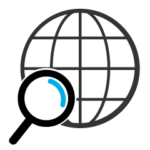Adoption of Automatic Information Exchange Standards
In light of our fully compliant rating on tax transparency, Ireland is likely to continue to be an early adopter of automatic information exchange standards where such exchange promotes transparency. Ireland will constructively engage with any invitations to join the pilot scheme. Ireland’s future engagement will be aligned with our commitments as a FATF member and our obligations under EU law.
Completion Status:
Commitment filtering:
This commitment addresses a specific mechanism, namely the Standard for Automatic Exchange of Financial Account Information in Tax Matters (the AEOI standard) developed by the OECD.[1]
[1] OECD Global Forum on Transparency and Exchange of Information for Tax Purposes, The Framework for the Full AEOI Reviews: The Terms of Reference, https://www.oecd.org/tax/transparency/documents/AEOI-terms-of-reference.pdf
This statement is evasive at the outset (i.e., “Ireland is likely to continue”) but ultimately commits Ireland to alignment (i.e., “future engagement will be aligned”) with AEOI standards in line with FATF membership and EU legislation on AEOI, meaning Council Directive 2011/16/EU and its amendments. The commitment can thus be measured by whether Ireland a) is compliant with AEOI standards as they relate to FATF recommendations and b) has implemented any amendments to the relevant EU directive since this commitment was made in 2018. Ireland should be firmer in its commitments and set concrete, measurable actions without equivocation.
Evaluation:
Before this commitment in 2018, Ireland was already participating in range of automatic exchange of information (AEOI) initiatives and had in place a number of relevant agreements with other jurisdictions. These include the Foreign Account Tax Compliance Act (FATCA) Intergovernmental Agreement[1] signed with the Unites States as well as a number of arrangements stemming from EU Directive 2011/16/EU on administrative cooperation in the field of taxation[2] (also known as the “DAC”, or Directive on Administrative Cooperation)[3]) and its amendments: DAC2-CRS (common reporting standard), DAC3-OECD BEPS (base erosion profit-shifting), DAC4-CbC (country-by-country reporting). Exchanges of information under these agreements continue.
Ireland has implemented DAC5[4] which came into force in January 2018 and connects anti-money laundering efforts that are monitored by FATF to tax authorities’ access to information.[5] Ireland has since also adopted DAC6,[6] relating to mandatory disclosure of certain cross-border arrangements that could be used for “aggressive tax planning”. The Department of Finance has reported that the first exchanges under DAC6 took place in 2021. The latest date for implementation of DAC7, which requires digital platform operators to report income generated by their users, is 31 December 2022. In line with the commitment’s reference to being an “early adopter”, Ireland has already transposed DAC7 through the Finance Act 2021, which was signed into law in December 2021.[7] Further regulations will be made in 2022, in advance of first information exchanges being made in respect of income reported for the 2023 period.
According to the OECD’s Peer Review of the Automatic Exchange of Financial Account Information 2021, “Ireland’s legal framework implementing the AEOI Standard is in place and is consistent with the requirements of the AEOI Terms of Reference. This includes Ireland’s domestic legislative framework requiring Reporting Financial Institutions to conduct the due diligence and reporting procedures (CR1) and its international legal framework to exchange the information with all of Ireland’s Interested Appropriate Partners (CR2)”.[8] The review makes no recommendations for Ireland.
[1] Revenue Commissioners Ireland, Agreement Between the Government of Ireland and the Government of the United
States of America to Improve International Tax Compliance and to Implement
[2] Official Journal of the European Union, Council Directive 2011/16/EU of 15 February 2011 on administrative cooperation in the field of taxation and repealing Directive 77/799/EEC, https://eur-lex.europa.eu/LexUriServ/LexUriServ.do?uri=OJ:L:2011:064:0001:0012:EN:PDF
[3] Revenue Irish Tax and Customs, What is the Directive on Administrative Cooperation (DAC)?, https://www.revenue.ie/en/companies-and-charities/international-tax/aeoi/what-is-the-directive-on-administrative-co-operation-dac.aspx
[4] Official Journal of the European Union, Council Directive (EU) 2016/2258 of 6 December 2016 amending Directive 2011/16/EU as regards access to anti-money-laundering information by tax authorities, https://eur-lex.europa.eu/legal-content/EN/TXT/?uri=celex%3A32016L2258
[5] Department of Finance Ireland, Ireland’s Corporation Tax Roadmap: January 2021 Update, p. 22, https://assets.gov.ie/118966/7ca4c265-2728-4a34-9081-b37234bd2833.pdf
[6] Revenue Irish Tax and Customs, Irish legislation and guidance on DAC 6, https://www.revenue.ie/en/companies-and-charities/international-tax/eu-mandatory-disclosure-regime/irish-legislation-and-guidance-on-dac6.aspx
[7] Houses of the Oireachtas, Finance Act 2021, https://www.oireachtas.ie/en/bills/bill/2021/132/
[8] OECD, Ireland: Overall Findings’, in Peer Review of the Automatic Exchange of Financial Account Information 2021, https://www.oecd-ilibrary.org/sites/90bac5f5-en/1/3/3/48/index.html?itemId=/content/publication/90bac5f5-en&_csp_=aa2f356dd6bbbe404b61173af3f1c85c&itemIGO=oecd&itemContentType=book
